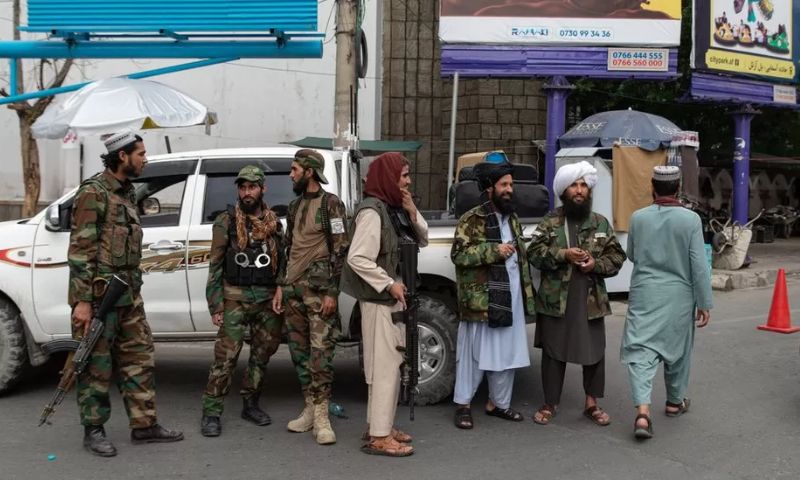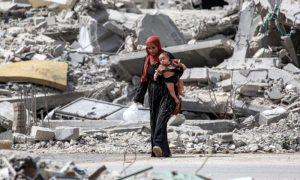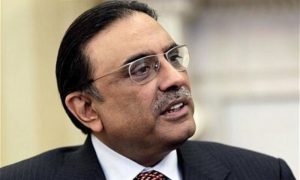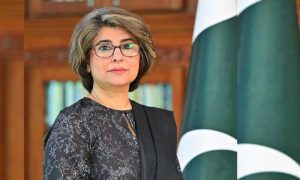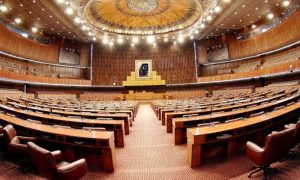LONDON: Two years have passed since the Taliban seized control of Afghanistan, yet not a single nation has officially recognized its governance. The question of engaging with the Taliban administration continues to spark intense controversy, dividing those who believe dialogue can spur change from those who argue that the Taliban’s inherent inflexibility negates any point in the negotiation.
In the midst of global deliberations on how to approach Afghanistan’s new rulers, women’s rights, and even the presence of beauty salons, have transformed into focal points of political contention. Sakina, a beautician, operates covertly in a dimly lit room, her windows concealed, surrounded by assortments of lip pencils and glistening eye shadow palettes. She contemplates why individuals like her have seemingly become bargaining tools in geopolitical manoeuvring.
Sakina observes the Taliban are pressuring women as a means to coerce the international community into acknowledging their rule.” Forced to operate underground after the government mandated the closure of women’s beauty parlours, Sakina exemplifies the ongoing stream of decrees curbing the freedoms of Afghan women and girls. Amidst this uncertain landscape, Sakina acknowledges the enigma of the Taliban’s potential responses. If the Taliban are accepted as the government, they might ease restrictions, or they could further tighten them,” she conjectures, encapsulating the pervasive ambiguity surrounding this intricate and sensitive issue.
The Taliban, for their part, maintain that matters such as women’s rights fall outside the purview of global intervention. Zabihullah Mujahid, the Taliban’s spokesperson, dismisses concentrated attention on this particular issue, asserting that “it’s merely an excuse.” Speaking from Kandahar, where the Taliban’s supreme leader Haibatullah Akhundzada resides, Mujahid contends that the international community should have recognized the government earlier. He emphasizes that progress has been made and promises further advancement.
The divide on how to engage with the Taliban government is stark, extending through communities invested in Afghanistan’s future. This includes the deeply disheartened Afghan diaspora, who fled their homeland during the Taliban’s second ascension to power in August 2021.
Fatima Gailani, a member of the Afghan delegation that negotiated with the Taliban until their seizure of power, muses, “Saying don’t talk is easy.” She highlights the necessity for dialogue as an alternative to conflict. The diaspora’s opinions span a spectrum from advocating increased pressure and sanctions to advocating complete disengagement. Zahra Nader, founder of Zan Times, a women-led newsroom in exile, questions the utility of engagement, asserting that the Taliban’s intentions are clear.
Diplomats engaged in discussions stress that engagement does not imply recognition and concede that concrete progress remains elusive. Nonetheless, inklings of discontent within the upper echelons of the Taliban leadership regarding the most stringent decrees offer glimmers of hope. A Western diplomat, involved in recent talks with mid-level Taliban representatives, notes that strategic engagement with Afghans who seek it is vital to avoid allowing more oppressive elements to gain unchecked influence.
Recent interactions between Akhundzada and Qatar’s Prime Minister Mohammed bin Abdulrahman Al Thani signal potential avenues for progress. Although discussions reveal significant disparities, particularly concerning education and women’s rights, they also hint at a slow but possible way forward.
The challenge lies in bridging the substantial trust deficit cultivated over years of conflict. Kate Clark of the Afghanistan Analysts Network underscores this divide, with the Taliban fearing Western intentions of influencing their culture, while the West objects to their policies on women’s rights and autocratic rule.
Outside powers attempt to balance criticism with acknowledgement of positive developments, such as anti-corruption efforts and countermeasures against the Islamic State group. Nonetheless, a harder stance emerges, with the UN now describing the Taliban’s policies as “gender apartheid.” Even as the Taliban bar women from public parks, gyms, and beauty salons, initiatives are underway to build a case for “crimes against humanity.”
Amidst mixed signals and occasional disagreements between regional and Western powers, a semblance of consensus emerges regarding the threshold for recognition. This impasse bears grave consequences for ordinary Afghans, as humanitarian funding dwindles, and hunger becomes more prevalent. Islamist groups like ISIS continue to expand their influence, compounding the challenges.
The Taliban, undeterred by the lack of formal recognition, present a positive image, with their envoys frequently travelling for discussions. Yet, Western embassies in Kabul remain mostly closed, raising discussions about influencing the regime through a diplomatic presence in Qatar.
As the world grapples with how to address the Afghan situation, the desire to avoid another bloody chapter in the nation’s history is evident across global capitals. Amidst discord within the Taliban, unity remains a paramount objective.
Resolving Afghanistan’s complex challenges defies quick solutions. Sakina, the beautician, encapsulates the sentiment of many when she states, “The suffering is real.” Her words resonate as the world searches for ways to navigate the intricate web woven by two years of the Taliban’s rule.









